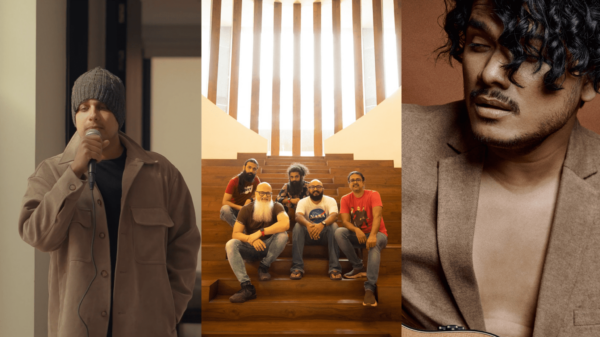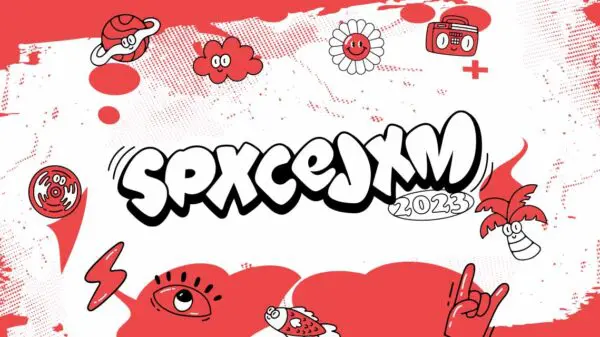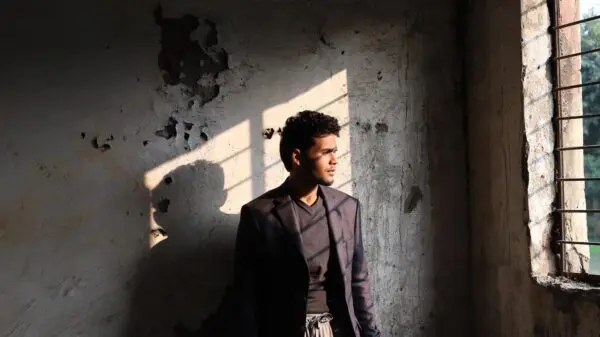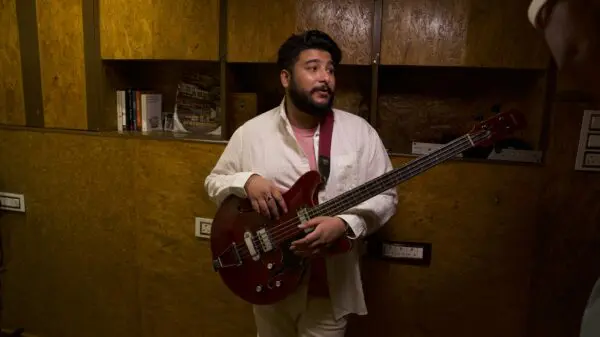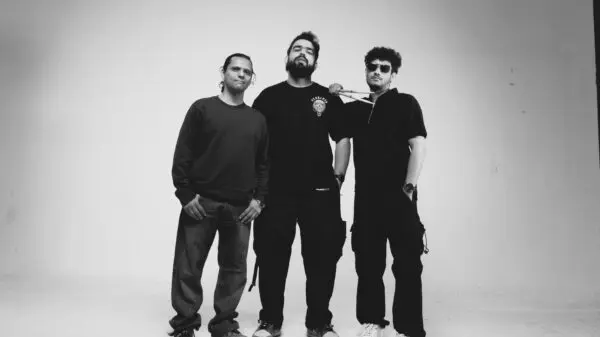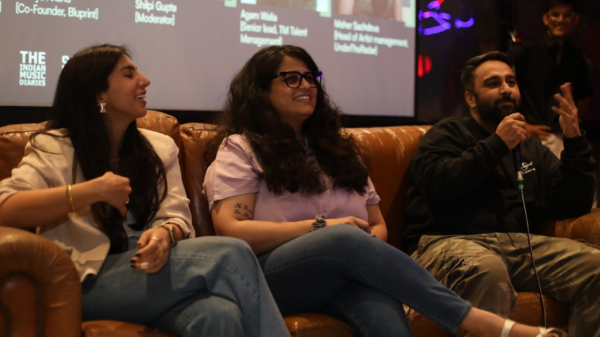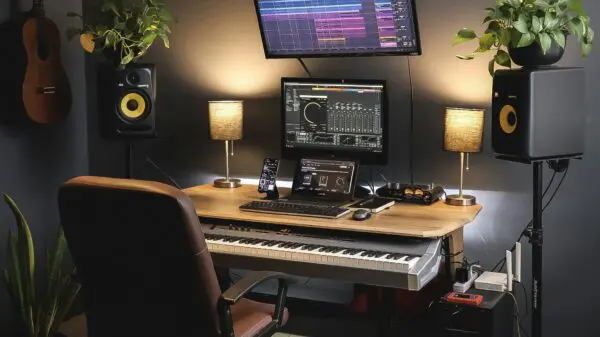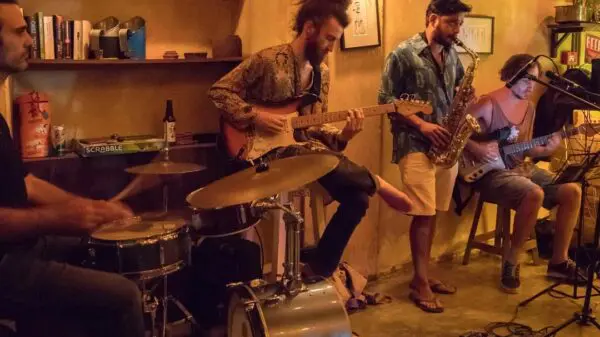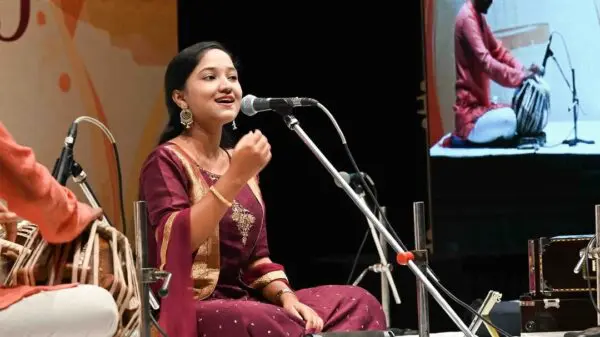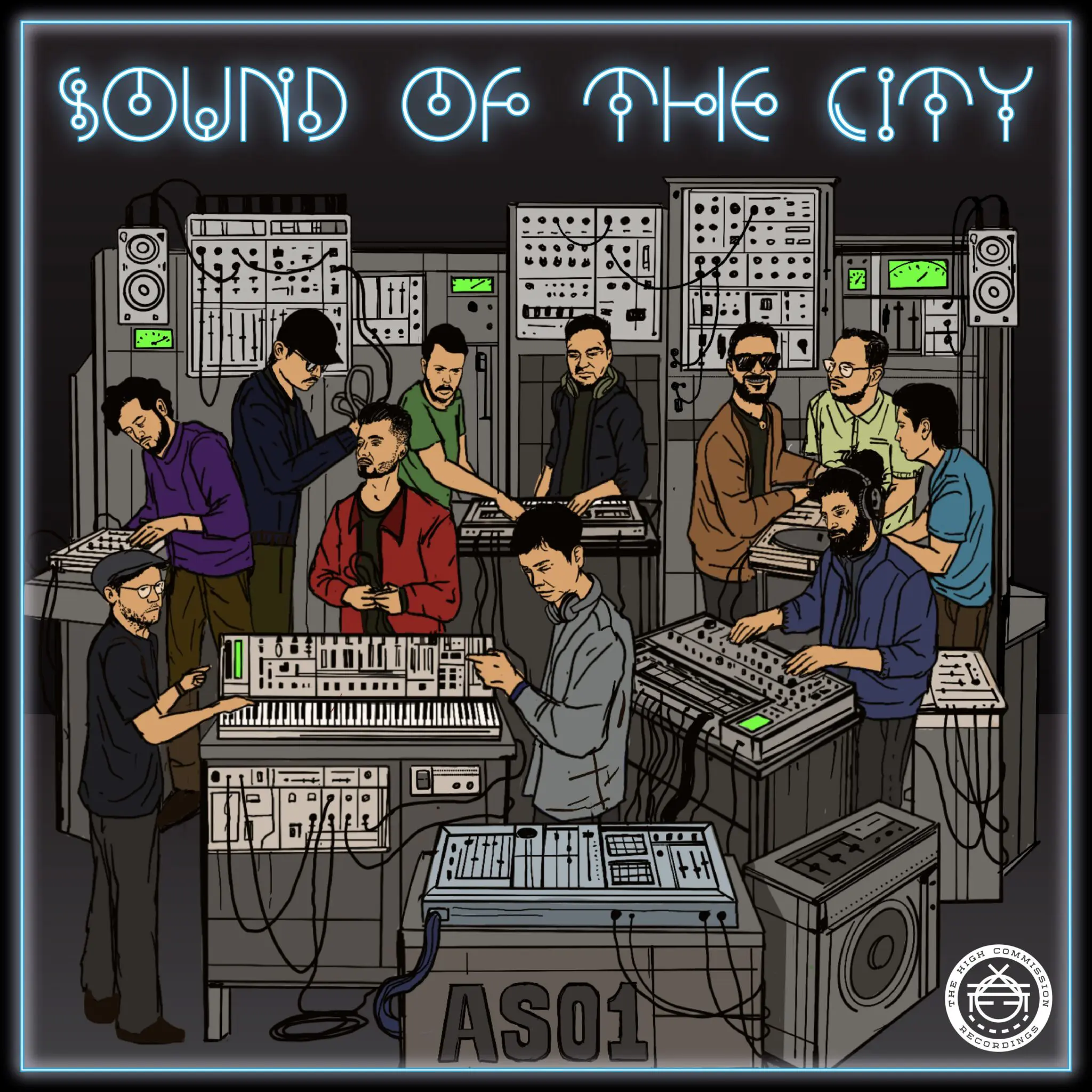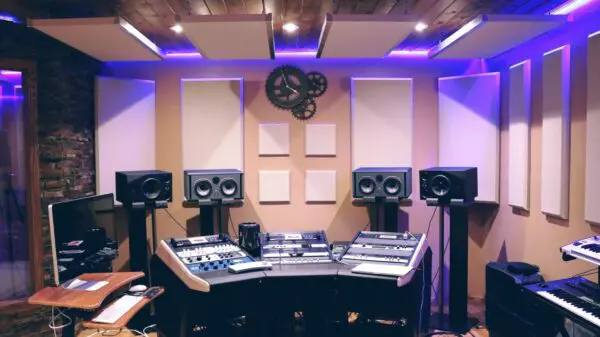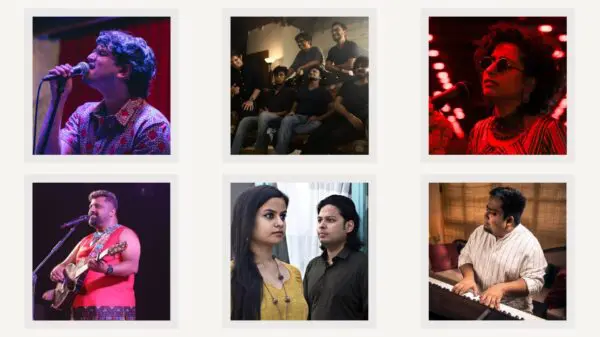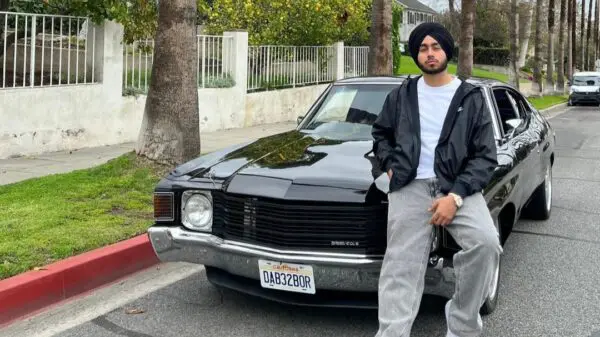Artists might not deal with industrial red tape today in the same way that their predecessors used to. Creating and reaching an audience has never been easier. But oftentimes independent artists find themselves dealing with the predicament of prioritising and investing in the expansive network that has subtly taken the place of the erstwhile concrete doors of traditional record labels. With access comes democratisation, and with it, a new set of rules mostly formed on familiarity and recency biases. Enter The High Commission Recordings, a home-grown independent record label hailing from the city of Guwahati, a hub of the pioneering and ever-present independent music scene of the north-east of India. With their debut compilation album, “Sound of the City”, the label and its artists hope to cut through the red tape, literal and proverbial, and step outside of boxes that might have been created around them. We conversed with the ten artists featured on the album, ahead of their album launch shows in Guwahati and Shillong, and their showcase in New Delhi on the 24th of February. Speaking to a wide range of subjects from the nature of long-standing collaborations to public personae of musicians to the importance of live music, now more than ever, here are some excerpts from the conversation:
On creating music as part of a unit
Spirit and the Guide: “The shift from those initial days of spontaneous creativity to now handling both internal and external expectations has been significant. Today, our brainstorming sessions are more structured, with a clear understanding of our roles and strengths. Tom continues to be the creative force, bringing visionary ideas to the table, while I focus on refining these ideas, ensuring they align with our project’s direction and the evolving tastes of our audience. The challenges we face now often revolve around balancing our creative instincts with the expectations placed upon us. As our project gained recognition, the stakes became higher, and the pressure to innovate while staying true to our sound increased. One of the biggest benefits of this partnership is the way it has expanded our musical horizons. This synergy has not only enriched our music but has also strengthened our bond as artists and friends. “

On honing in on a vision in the rapidly-changing music landscape of the North-East
Crane: “It’s disheartening to see the underrepresentation of north-east Indian musicians on major platforms, and we’re determined to change that narrative while making sure that the audience of Guwahati gets to experience a wide range of experiences. The formation of The High Commission Recordings is our proactive step towards achieving this goal. We’re focused on ensuring accessibility for our artists and elevating them to national and global recognition. In today’s digital age, the opportunities for exposure are vast, but knowing how to navigate them effectively is key. It’s essential to acknowledge and celebrate the platforms, like The Indian Music Diaries, that champion our endeavours.”

On live music in the streaming age
Torrid: “Growing up in Guwahati, Assam, I was immersed in a culture where live music was a vibrant part of our community. From traditional folk performances to contemporary rock concerts, I’ve always cherished the energy and connection that live music fosters. However, as the digital age unfolded, and streaming platforms became ubiquitous, there was a shift in the landscape. The allure of bedroom production and the convenience of streaming services led many aspiring musicians, myself included, to explore creating and consuming music in new ways. Over time, though, my perspective on live music has evolved. While I still appreciate the convenience and accessibility of digital platforms, as I embarked on my journey as a techno DJ and producer three years ago, I found that nothing quite compares to the raw energy and intimate connection forged between an artist and their audience in a live setting. As an artist hailing from a smaller city like Guwahati, I understand the significance of live events in cultivating a sense of community and fostering cultural exchange.”

On expectations from a public persona in music
Dab Mode: “The requirements of a public persona in the entertainment industry has usually included a certain expectation of an outgoing and brash personality trait. The entertainment industry is one of the largest and most important industries in today’s world. It influences our beliefs, values and especially our lifestyle choices. The industry has a direct impact on how we perceive the world around us. As we speak about perception in the independent music scene, it has been growing and I have seen these trends shifting in recent years. I think it’s very important to maintain diversity, even in personalities.”

On micro-classification of the genre in electronic music
Demiurgic:
“The casual listener is relatively unconcerned by what exact genre a certain track or song is. So, in that context, the classification of tracks and the number of genres may not help the cause as it leads to possible confusion. However, it is essential also to give due recognition to the various sub-genres and styles that have emerged in the realm of electronic music. All genres and sub-genres have their own unique nuances in the way they sound and the production techniques used to create them. The emergence of various genres and subgenres also helps a specific style to progress and diversity within itself. “

On the influence of geography on one’s sound
VHSR: “An artist’s sound does depend on where they are based geographically especially if the artist intends to incorporate sounds and samples indigenous to that region or part of the culture and lifestyle of that land. Personally, being born and raised in Assam, Rock and Metal music were a big influence in my formative years as a listener before being exposed to Electronic music. Now the world is digital and a lot of music that I discover is based on the algorithms of platforms like Spotify and SoundCloud which takes into account my listening patterns. That along with active digging for music forms the core of my listening which in turns influences my DJ sets and productions. So, the geography doesn’t really matter as much anymore as it may have in past times. Having said that, the kind of music that is being promoted by clubs and other DJs of a certain region also does have a lot of influence on artists and the overall music community of that region because that is the physical music experience that they are exposed to on a continual basis. In the context of Guwahati’s music scene, there are a lot of producers coming up with their own music and developing their own sound and DJs are evolving with time and continuously working on keeping their sets fresh. “

On balancing separate music projects simultaneously
Digital Decibel: “I was always in the process of competing with myself to see how far I go. So, experimentation and patience are the right words. Also, it helped me to understand my limitations and work on the negatives. It is always good if you test your limits. It’s always better not to think and weigh the fruits too early as there are endless possibilities. When I started my musical career way back in 2002, social media was not there and it was very hard to promote yourself. Things are way better than before these days but I am still learning with time as for me every day is new. Psytrance music is my love and I try to keep my imagination floating so I produce multi-genre music which helps me to understand different variations in music and also in life. While trends in music can fluctuate over time, the psychedelic trance genre has maintained a dedicated fanbase and continues to evolve. While it may not be as mainstream as other genres, it still enjoys popularity in various parts of the world, and its influence can be heard in other electronic music genres as well. So, while it might not be at the forefront of mainstream music, it’s unlikely to become completely obsolete anytime soon. “

On Carnatic music being a core influence on the album
Langza: “My journey towards my current musical identity began at a young age, immersed in the rich tradition of Indian Carnatic music and the intricate rhythms of percussion instruments like the Tabla. In those early years, the world of music for me was purely analogue; the idea of creating music with a laptop seemed beyond imagination until the early 2000s. As life unfolded, I found myself on a path of exploration, encountering diverse cultures, meeting new people, and embracing novel experiences. It was during this journey that I was introduced to electronic music, particularly the entrancing rhythms of psychedelic trance. This marked a pivotal moment, sparking my passion for electronic music production. Around 2015, I delved into the realm of darkpsy, albeit at an amateur level. However, it was in 2017, after undertaking a sound engineering course, that I honed my skills and began to refine my craft. Throughout this evolution, my foundation in Carnatic music remained steadfast, serving as a guiding influence in my musical endeavours. The intricate melodies, rhythmic patterns, and nuanced compositions of Carnatic music not only shaped my understanding of music but also enhanced my ability to discern and fuse elements seamlessly within electronic music.”

On the differing processes for different genres
Kush: “I delved into EDM in 2005 through Trance, but as awareness grew, so did my exploration into various sub-genres like Techno and Psychedelic Trance. The beauty lies in experimenting with sounds, breaking free from imitation, and inspiring evolution in music. Whether it’s crafting a Techno or Psy-Trance track, the creation process starts with inspiration and an openness to diverse influences. The audience response varies, much like individual music preferences across different genres, even within sub-genres like Psy-Trance and Techno. Our role is crucial in expanding the listener base and contributing to the continuous evolution of this dynamic genre. Each genre offers a unique canvas for creativity, with audience preferences shaping the musical landscape. Embracing this diversity fuels the evolution of EDM, inviting more listeners to join the journey. “

On the longevity of electronic music in India
Synaptic: “Diving into the electronic music scene here in India has been quite the journey for me. Honestly, one of the biggest hurdles I’ve faced is battling that inner voice of self-doubt. It’s like this looming presence, especially when you’re just starting out like I am. And you know, it’s not just about doubting your music; it’s about navigating through a whole maze of challenges that come with it. You see, it’s a bit like how Bollywood dominates the entertainment industry here. In the electronic music scene, it’s all about connections and rubbing elbows with the right people to land those gigs. It’s tough because sometimes it feels like success hinges more on who you know than on how good your tunes are. And that can be tough for talented folks out there who just haven’t caught that lucky break yet. Patience is another biggie. I mean, those seasoned pros who’ve been in the game for decades didn’t get there overnight. They stuck it out, honed their skills, and waited for their moment. And then there’s this whole thing about undervaluing yourself. There’s this constant worry about being replaced by someone else willing to do it for free or for a lower fee, and that can really mess with your head. Ultimately, it’s about creating a culture where creativity is celebrated, everyone’s voice is heard, and we all lift each other.”


